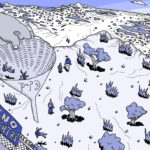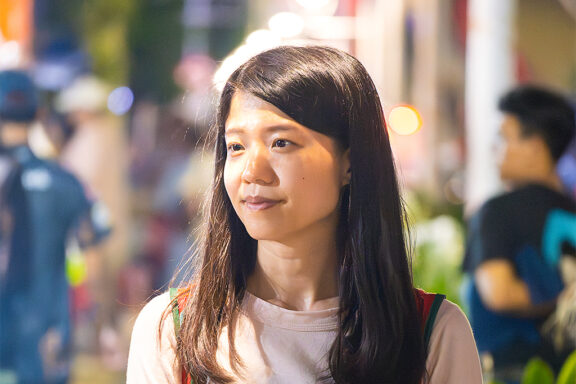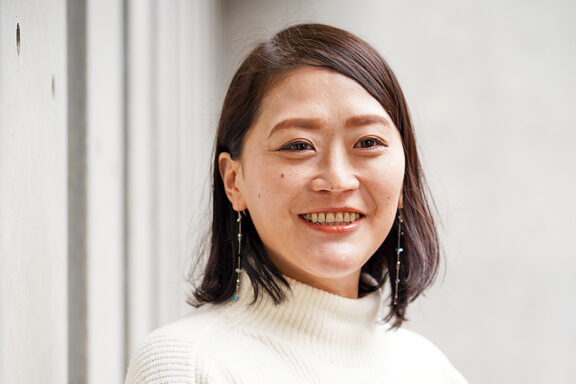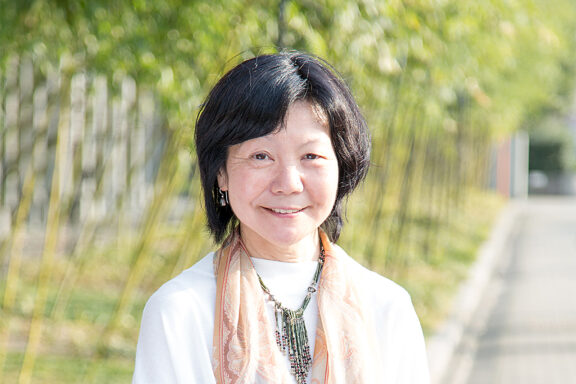Interview with Nurul Huda Mohd. Razif
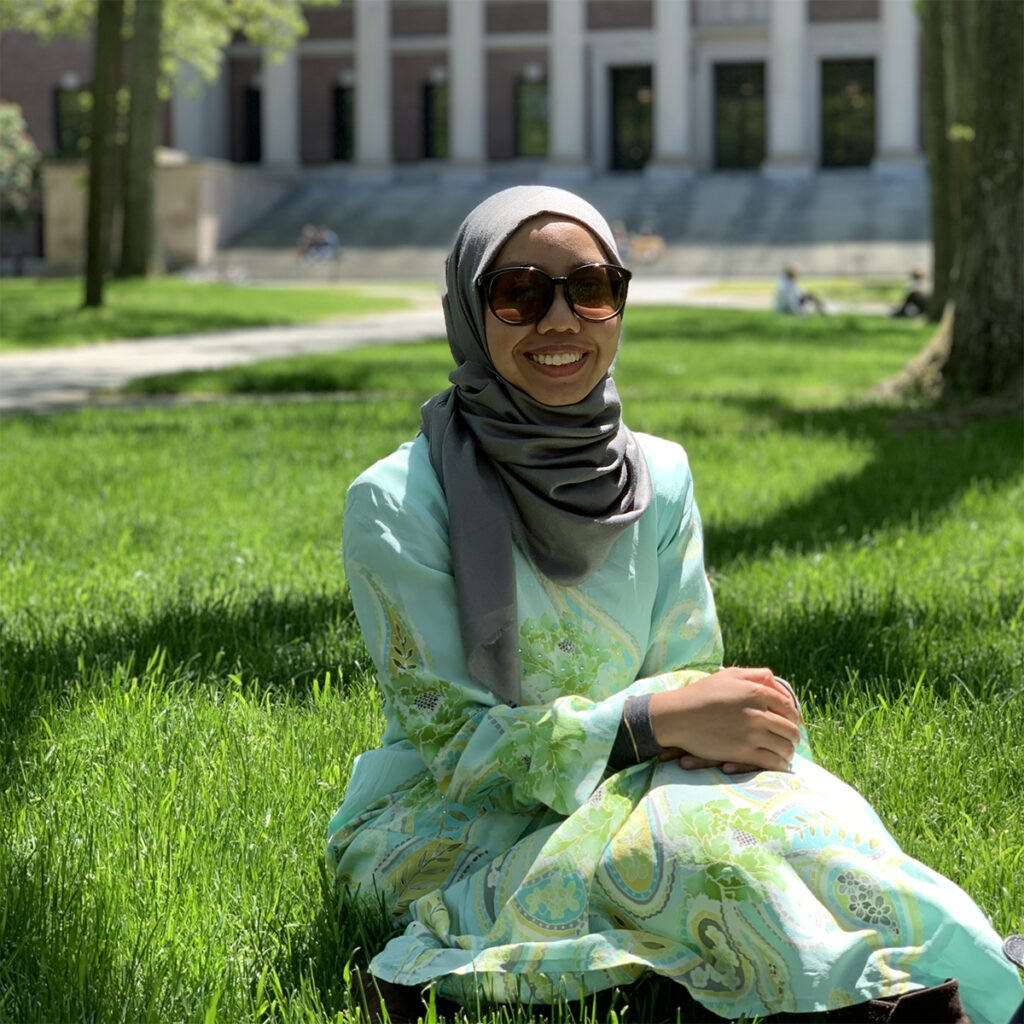
Short Bio
Nurul Huda Mohd. Razif is a social anthropologist researching marriage and intimacy in the Malay world and Muslim Southeast Asia. She is currently a Postdoctoral Fellow for the Japan Society for the Promotion of Science (JSPS) at the Centre for Southeast Asian Studies (CSEAS), Kyoto University, Japan. Nurul read Anthropology and French at the University of Western Australia and Sciences Po Paris, before completing her PhD in Social Anthropology at the University of Cambridge in 2018. Since then, she has held various fellowships in Leiden and Paris, as well as a joint appointment as an Evans Fellow on Southeast Asia at the Department of Social Anthropology, University of Cambridge and a Visiting Fellow in the Program on Law & Society in the Muslim World, Harvard Law School. In 2024, she will serve as a Marie Curie Fellow at the University of Bergen, Norway. Her work has been published in Asian Studies Review, Archipel, and Hawwa: Journal of Women of the Middle East and Islamic World. Personal Site: https://nhmraz.com/
──Please tell us about your research.
In a nutshell, my work as an anthropologist focuses on the intersection between intimacy, Islam, and the state in contemporary Malaysia. Specifically, I’m trying to understand why there seems to be a statistical increase in the practice of polygyny (one man marrying multiple wives) — and does this have anything to do with a coincidental rise in the number of couples eloping to Southern Thailand to marry there? What I’ve found is that the criminalization of sexual intimacy before/outside of marriage under Malaysia’s Islamic law creates heavy pressures for Muslim couples to “halalize” (that is, to render “halal” or permissible) their relationships through marriage (nikah). However, strict conditions for marrying under the Islamic Family Law such as getting the permission of the bride’s father or wali (male guardian), and showing proof of financial ability to support multiple families (for men intending to marry another wife) make it particularly difficult to marry legally in Malaysia, hence the rising incidence of elopements to Southern Thailand in recent years.
What’s perplexing is that the Malaysian Islamic authorities have done little to curb these elopements. To the contrary, they have collaborated with the Thai Islamic authorities to streamline the channels for contracting a legitimate Islamic nikah when eloping, effectively condoning these couples’ attempts to marry through the backdoor, even if they were not eligible for polygyny. My research also looks at what happens after these couples return home after their elopement, where many do not find their happy ever after. The lack of regulation on cross-border elopements creates even more precarities for women and children, particularly those entangled in “secret” polygamous marriages where there is no transparency or certainty that they will be protected by the law in cases of the husband’s economic and emotional negligence.
Through my work, I aim to connect the dots and create the links between love and the law, and how legislations at the state level could influence the course of intimacy — and vice versa.
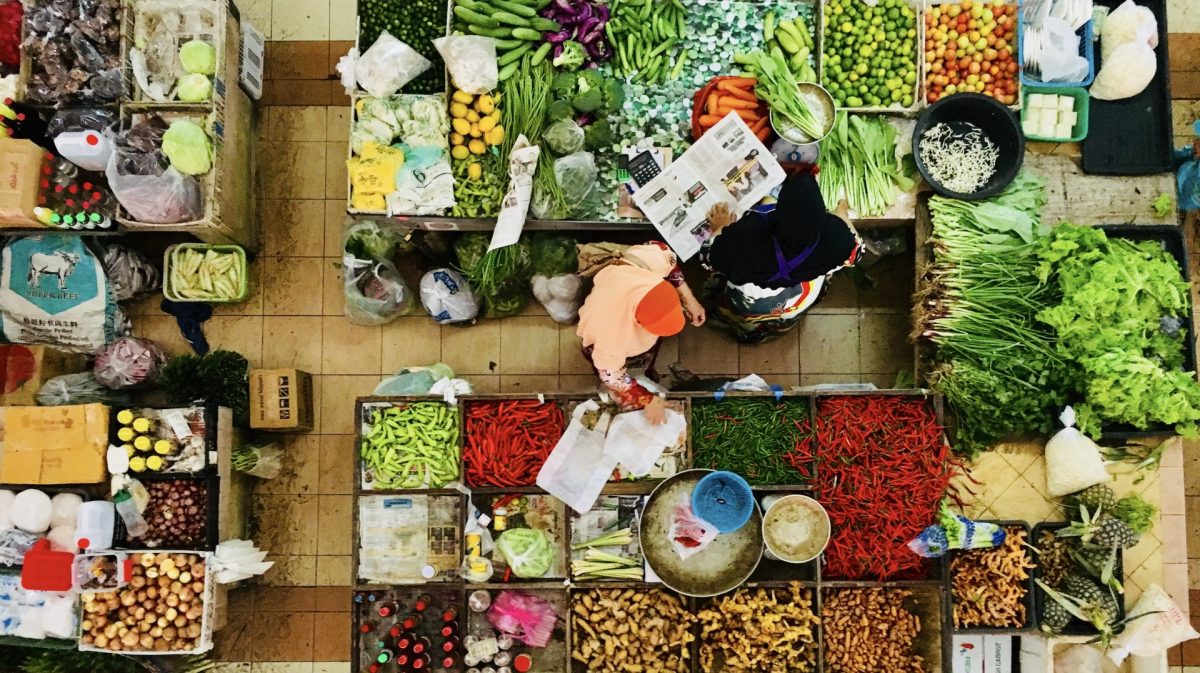
──Why did you choose to be a scholar and how did you decide on your current research topic and approach?
It is incredible how ubiquitous polygyny is in Malaysia: if you’re Malay, very likely you might have had a polygynous male ancestor somewhere up your family tree. If you turn on the TV, you will no doubt stumble upon a Malay telenovela with polygyny at the core of its plotline. As the American anthropologist Patricia Sloane-White has shown in her work, sexualized “jokes” about polygyny also permeate the Malay corporate workplace, and, of course, in the private homes, where a husband’s “threats” to “open a new branch” (buka cawangan baru) elsewhere keeps Malay wives in line, lest they wish to see their husband divert his love, resources, and attention away to another family.
For Malays in Malaysia today, polygyny is, quite literally, in their blood, and certainly a national preoccupation – one might even say “obsession” — and it has been naturalized through its pervasive presence in religio-political discourse and in everyday life. More than this, polygyny is protected by the male-dominated religious and political Malay elite, who consider any condemnation of polygyny as an affront against Islam itself.
This is exactly what I found problematic about the naturalization of polygyny in Malaysia: it silences alternative voices — particularly from women — that have experienced subjugation and suffering through this supposedly “religious” practice. In my research, I wanted to deconstruct polygyny to understand how it came to acquire its aura of untouchability at the legal, religious, and national level, when in reality, Malays are constantly confronted with harrowing stories of marital discord, divorce, and the disintegration of the family institution that can be traced to men’s harmful practices of polygyny. The only way to capture polygyny in its totality is through in-depth, long-term ethnographic research: talking to couples in polygyny, to understand the factors and circumstances that led them to polygyny, and how that decision changed the course of their lives; interviewing judges, observing hearings, and conducting archival research in the Islamic courts, to see the law in practice; living with a polygynous family, to capture the everyday reality of life for all involved in polygyny.
That’s why I chose to be a scholar. Why I chose academia as a profession is an entirely different story, however: besides the thrill of intellectual engagement with a topic that I’m passionate about, I wanted to be an academic because it allows me to continue the nomadic life I have lived since I was a child growing up between Malaysia, West Africa, and South Asia. In my postdoctoral years alone, I have lived in five countries across three continents (the UK; the Netherlands; the US; France; Japan) — much of it while a global pandemic was raging. I wouldn’t recommend this life to anyone – living out of a suitcase while collecting social security numbers every time you unpack in a new country can be physically, psychologically, emotionally, and financially draining. (This is in fact symptomatic of the rather apocalyptic state of the global academic job market, where short fixed-term contracts are becoming the norm, and tenured or permanent positions are slowly going extinct.) However, my nomadic career path allows me to experience what it is like to be a female Muslim academic in countries where the hijab (headscarf) has always been a contested issue, and where there is little to no representation of WOC (women of color) in academia. I get to meet incredible people who become friends, colleagues, and mentors to me. These experiences — seemingly tangential to my work as an academic — actually enhance my understanding of the world as an anthropologist.
──Please tell us about the impressive people, things, and places you have encountered in your research.
Writing about contentious topics such as polygyny in my research can be quite frustrating; thankfully, I get to live in some incredible places while being a wandering academic. Cambridge was a beautiful place to write up my PhD — I have such fond memories of this place, and continue to return every year for tea with my supervisor and my former landlady, both of whom were so influential in guiding me to become the woman and anthropologist that I am today. Walking through the streets of Paris and along the Seine during lockdown was also magical. I don’t think we will ever get to see the City of Light devoid of tourists again. I’m glad we had the city all to ourselves for a brief period, during which I also got to rediscover my passion for photography. Japan, too, has given me so many things to cherish: not long after moving to Kyoto, I went traveling through the Japanese Alps, met my husband there, and had our first wedding party right here at CSEAS. My interlocutors in the field would always invoke the Malay conception of jodoh (destiny; we-are-meant-to-be) when they talk about the spouse(s) they met and married. After nearly a decade of studying marriage, I finally understood what they meant.


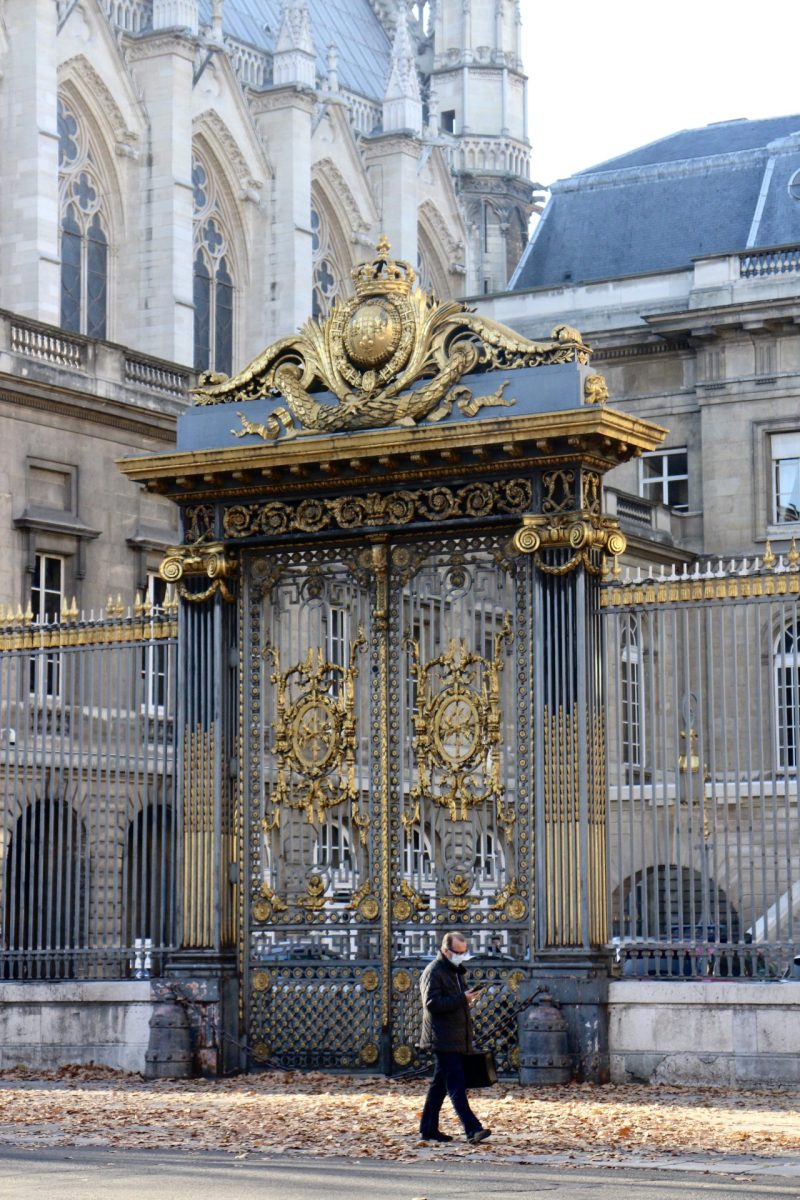
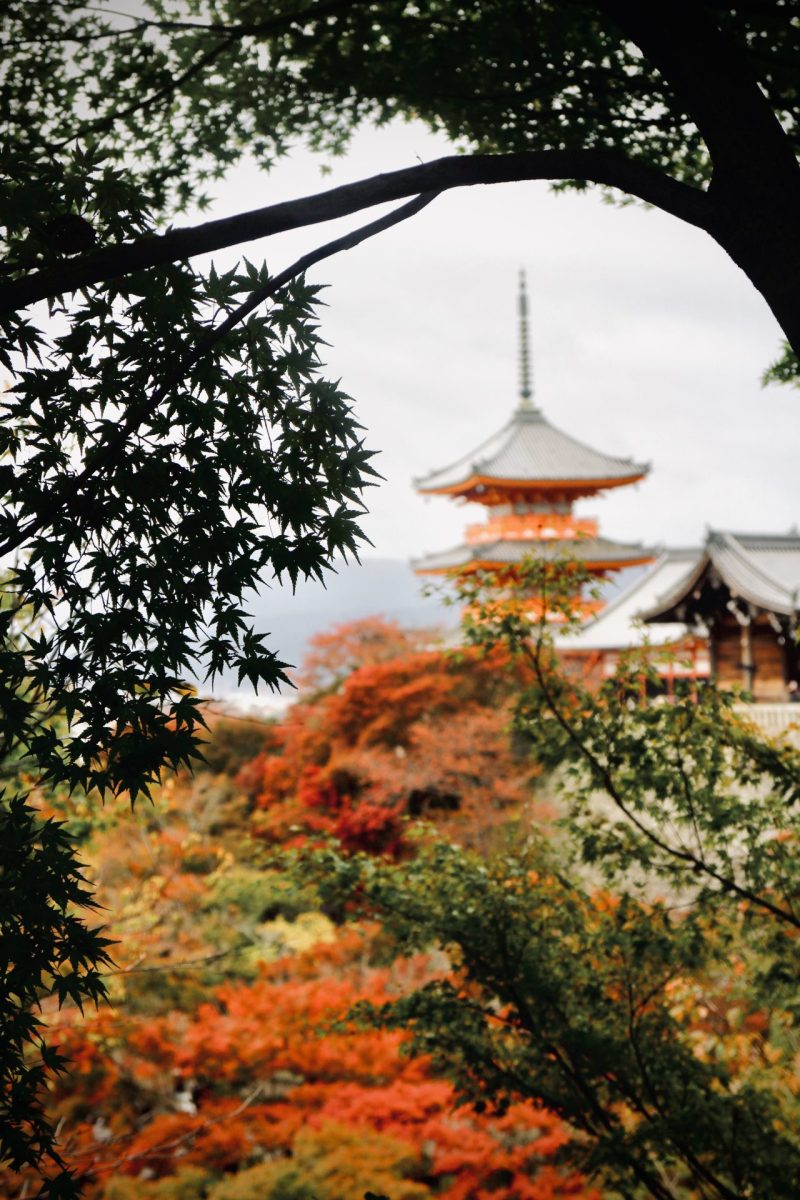
──Please tell us about the books and experiences that have particularly influenced you.
One book that has shaped me as an anthropologist is Reindeer People: Living with Animals and Spirits in Siberia by Piers Vitebsky. It is an ethnographic account of the Eveny people in northeastern Siberia and the strong bonds they forge with reindeers in the course of their nomadic life across the Siberian landscape. I first read this book as a graduate student while writing up my PhD, and was very moved by the anthropologist’s lyrical writing style, his warm sense of humor, and the extraordinary experiences he shares with us.
From reading Reindeer People, I learned that a good anthropologist must also be a good storyteller: storytelling — through both the written and the spoken word — is essentially how we get to share to the world the places we study and the people we have the privilege of working with. Since then, I always try to make my writing accessible to an academic and lay audience so as to make my work as interesting and as reachable as possible.
──Could you tell us about your ideal image of a researcher?
The ideal researcher to me should be curious and kind, whatever their disciplinary background(s) and level of seniority might be. We meet a lot of intelligent people with PhDs in academia, but not all possess the emotional intelligence to treat scholars of any level with kindness and respect.
──Please tell us about the difficulties you faced in compiling the results of your research into a paper or book.
The PhD is perhaps the only time we get to work on one chunky piece of work (i.e., the dissertation) continuously, without any distractions. Since finishing my PhD, I have found it particularly challenging to turn this dissertation into a book manuscript in the postdoctoral period. This early stage of my career requires juggling multiple priorities — publishing; networking; job-hunting — all while relocating to a new country in a different continent every year, and building new connections while maintaining old ones. In other words, life happens; and perhaps that, in itself, is part of the experience of writing the book too.
──Please tell us about your must-have gears, or must-haves of research and writing.
For anthropologists, we are never in the field without a trusted pen and a solid notebook. I always use a black Pilot Juice 0.38 pen for smooth penmanship; for years, I’ve had a Moleskine weekly planner, and since moving to Japan, I have consistently used a Traveler’s Factory notebook as my personal journal in the field. For fieldnotes, any A5-sized notebook small enough to fit in my small purse would do — for social events like weddings, it’s best not to look too conspicuous with a chunky notebook.
──Which books do you recommend for young scholars and why?
I have no specific book to recommend to young scholars, but I do recommend them to read outside of their research area as much as possible. This would help them to take a break from their research, and hopefully gain a different perspective on their own work. When I was writing up my PhD, I had a Muscovite friend who introduced me to Russian classics. Every evening after coming home from a whole day of writing my dissertation in the library, I would immerse myself in the pages of an Everyman edition of Nikolai Gogol, Fyodor Dostoevsky, and Boris Pasternak. My favorite to this day remains Leo Tolstoy’s War and Peace, which was so enthralling that I found myself wishing there was a fourth volume. These books had nothing to do with polygyny and intimacy in contemporary Malaysia, and that was exactly why they were able to give me a much-needed repose so I could return to my dissertation with fresh eyes the next day.
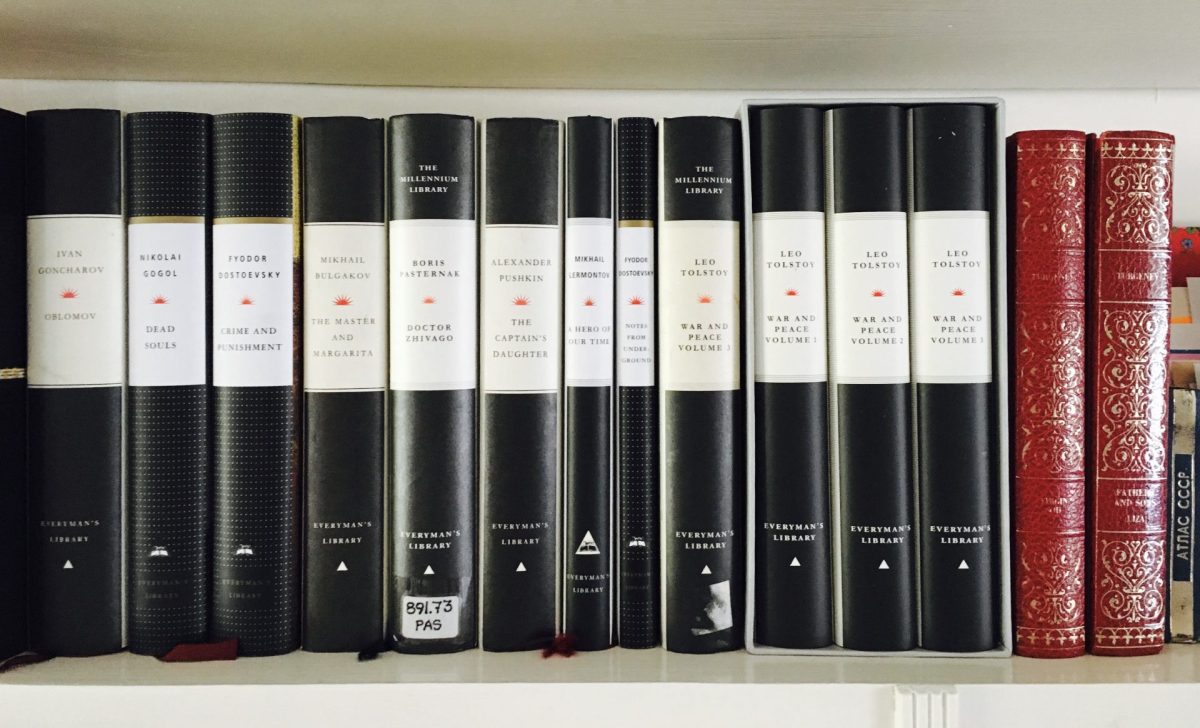
──Please tell us your future ambitions.
Anthropology — and the social sciences in general — have always been an undervalued discipline in Malaysia. In the future, I hope to raise more awareness on how disciplines like anthropology could be essential and conducive to living in a multicultural and multireligious society like Malaysia. Besides this, there is still so much about polygyny in Southeast Asia and across the Muslim world that we don’t know about, so I hope to uncover more on that front. I also hope to explore uncharted territories as an academic that does not require following the traditional career path towards a tenured professorship. Perhaps one day I might buy a Kyomachiya in Kyoto and renovate it into a guesthouse, while continuing to write for an academic and a public audience. Who knows?
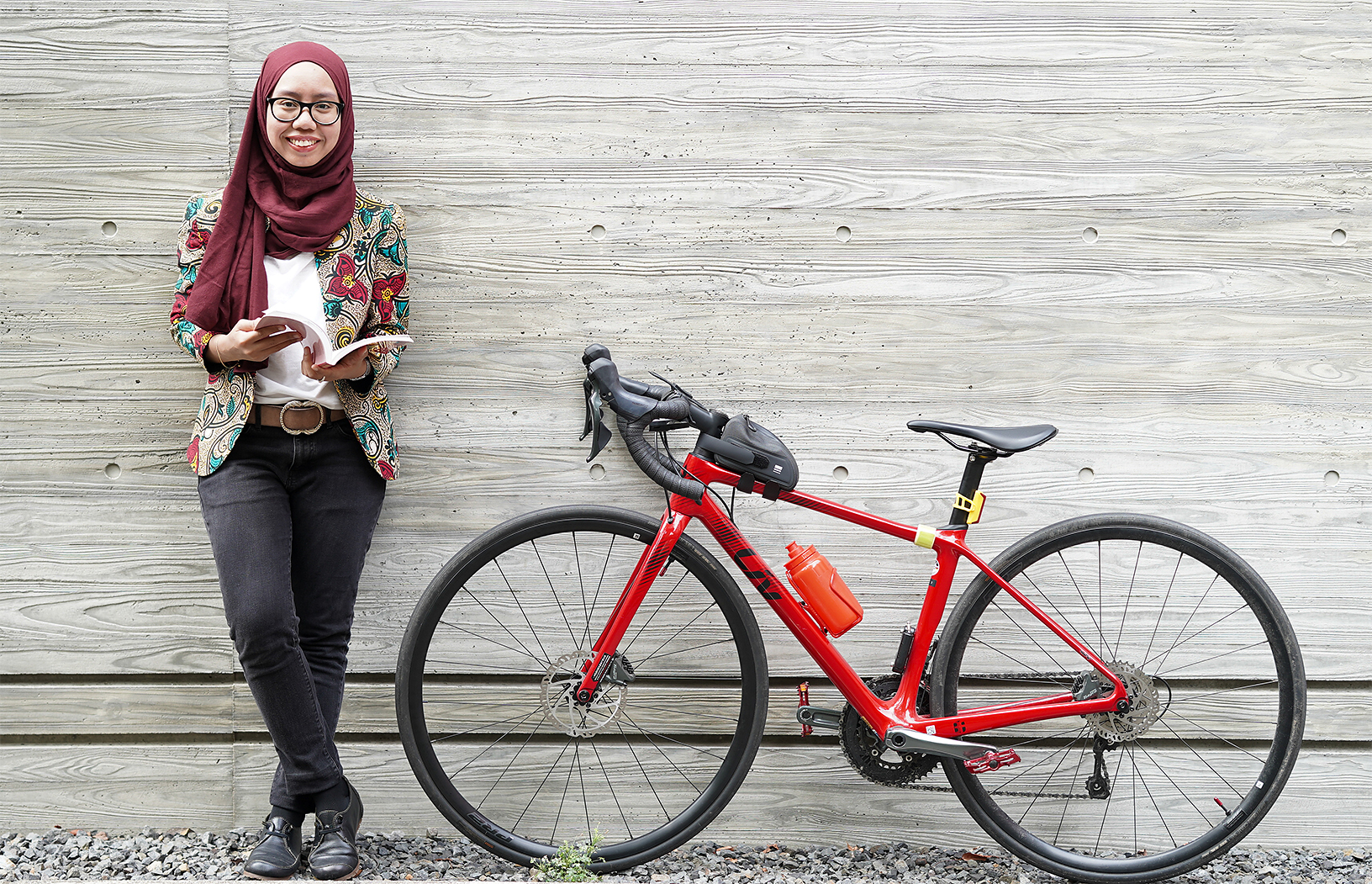
(August 22, 2023)
This article is also available in Japanese. »
「旅する人類学者:学問の世界をノマド的に生きる」
ヌルル・フダ・モハメド・ラジフさんインタビュー


